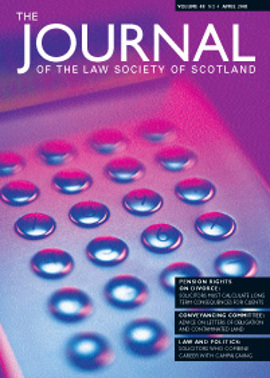Genealogy
People who fail to make wills often fail those who should be their beneficiaries. Conversely this can produce a situation where more distant relatives unexpectedly benefit instead – and have to be located. Or where there is a will, the named beneficiaries may have moved on, or are themselves deceased – with the result that their own legal heirs may in turn be entitled to benefit.
Genealogists can assist when a key piece is missing from the wills and probate jigsaw. We help people – for example, entitled heirs likely to lose out through intestacy, or beneficiaries named in wills – receive what they’re entitled to.
People’s lives may seem fully documented, but real life still presents unexpected dramas. Geography, a generations-old quarrel, serial divorces, the fortunes of war all cause families to lose contact. Individuals also perform unusual “vanishing tricks”: changes of gender and secret marriages are only two of the “stranger than fiction” stories that make some case files read like sensational novels.
Modern mobility adds to the caseload
The intestacy situations that genealogists aim to resolve arise almost anywhere in the world. This is partly a consequence of modern communications and their double-edged effect. They can keep a far-flung family in closer contact. On the other hand they encourage ever-wider dispersion – which then may lead to ties with the original home base being lost.
So a case that starts off as home-made as girdle scones may lead to unheard-of relatives in Australia, making it necessary for the legal profession to use the specialist services of a probate genealogist.
Another potential source of concern to legal practitioners may be clients’ use of international trusts to preserve their estate from local laws governing inheritance, and from local tax officials eager to claim their share. As the life of a trust covers perhaps several generations identifying beneficiaries becomes increasingly difficult.
This applies particularly under some of the older trusts where neither the settlor, nor their advisers, could foresee the geographical range over which a family might live during the life of the trust. The growth in less traditional forms of family life also means that cousins, or half-brothers and sisters, can be linked in ways that would not have been envisaged a few decades ago.
So international trust specialists may call upon our skills to identify the right beneficiaries and exclude false claimants.
Why there may be a growing risk
All these factors expose lawyers who are responsible for estates and trusts to a wide range of potential risks. They are unlikely to have the time or specialist resources to find the individuals concerned. This type of work, involving many painstaking hours of research, is not an appropriate way for a fee-earner to spend his or her time.
This is where an experienced firm of probate genealogists can help. Researches may involve at least three generations, spreading back to the times when Europe’s overseas empires were being peopled from the home countries and other sources of emigration – for instance from Ireland to the United States, as well as the aftermath of more recent major wars.
Research techniques
Typically, research requires a team to identify and trace:
- Legal heirs where an estate is intestate;
- Missing beneficiaries named in wills and trusts;
- Beneficiaries under trusts – and their heirs;
- Original owners of land and other properties.
Civil servants and journalists often give the misleading impression that we live in a perfectly documented, electronic age – and that simply tapping a name into a computer will produce an instant printout listing every member of his or her family.
In reality things are very different. Even where the Internet proves a useful tool, or government records are both open and accessible, researchers will have to investigate micro-film or micro-fiche indexes, or records still in book form. With the more common surnames, specialists may also have to visit local register offices.
Management and control
Legal practitioners face a very real challenge. Successfully administering a will or trust depends in the first place on correctly identifying the parties concerned. Then a lawyer must be confident that their research has fulfilled the highest professional standards of care – including the duty of care imposed upon them by law.
Roger Hooper is Chairman of Hoopers, probate genealogists.In this issue
- The reality of pension sharing
- Clarifying the classic letter of obligation
- Commonsense approach to contaminated land
- Contaminated land liabilities
- “CML initiative” regarding new-build houses
- Risk management focus review
- Modernising justice
- Caveat spammer, caveat advertiser
- May 1 elections
- Costing solutions to common executry problems
- Genealogy
- Website reviews
- Solicitors can promote legacy giving
- One-door regulator for charity sector
- Client relations
- Open question on sentencing guidelines
- Book reviews






